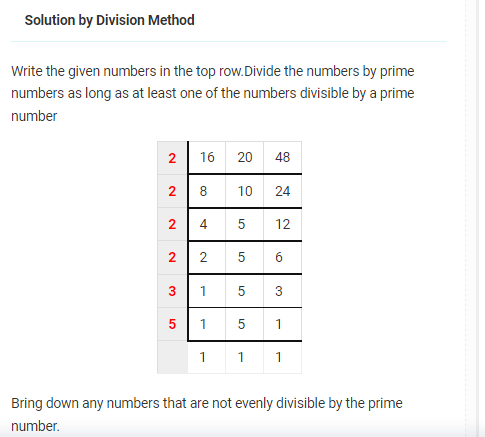Lowest Common Multiple (LCM, LCD) Calculator
Least Common Multiple (LCM) Calculator
LCM calculator
The least common multiple commonly known as the LCM of any 2 or more positive integers is the least among the integers that divides each of the given integers. The LCM is also known as LCD or the least common divisor to imply that it is the minimum common divisor for a given set of numbers.
The least common multiple calculator and how it works
Finding the LCM can be a challenging experience especially when dealing with large numbers. One of the fundamental ways of finding the LCM involves listing all the possible divisors or multiples for the given set of numbers and then selecting the minimum from the set of common divisors. When dealing with large and complex numbers, this can be a challenging task as one would need to list all possible divisors for a given set of numbers. Using our online LCM calculator helps you save time as well as increase the accuracy.
To use the calculators, simply put the numbers in the text area provided and hit the calculate button to display the results.
For example find the LCM of 300 and 67, simply enter 300, 67 in the calculator and hit the calculate button.
How to calculate the LCM
There various ways that can be used to find the LCM of any given set of numbers namely
- Listing the multiples
- Prime factorization
- Division method
- Venn diagram method
Our LCM finder helps you calculate the LCM using either of the above strategies. Further, the calculator shows you all the steps and working for finding the LCM.
Finding the LCM using the listing of multiples method
This method involves listing all the multiples for each of the numbers. Note that a multiple is also a divisor and therefore the list of multiples is also a list of divisors. Once, you have listed all the possible divisors for each of the numbers, we then select the common multiples and then choose the least among the multiples.
Example LCM (6, 8, 3)
- Multiples of 6: 6,12,18,24,30,36,42,48,54,60
- Multiples of 8: 8,16,24,32,40,48,56,64
- Multiples of 3: 3,6,9,12,15,18,24,27
Thus LCM (6, 8, 3) =24
Finding LCM using prime factorization method
Prime factorization is a commonly used method for finding the LCM of two or more integers.
How prime factorization works: We start of by writing the prime factors for each of the given numbers. Prime factors for a given integer n, are prime numbers p0---pn such then n= p0×p1× ... ×pn when all ps are prime numbers. To learn more on prime factorization, try out our prime factorization calculator .
Once you have listed the prime factors for each number, the next step is to select the highest number of occurrence for each of the prime numbers. The LCM is then given by the product of these prime numbers.
Example finds the LCM (12, 30)
Solution:
Prime factorization of 12 = 2×2×3
Prime factorization of 30 = 2×3×5
For each of the prime numbers, we find the most occurring times for each, thus LCM (12, 30) = 2×2×3×5 = 60
Example 2: Find LCM (24, 70)
Prime factorization of 24 = 2×2×2×3
Prime factorization of 70 = 2×5×7
LCM (24, 70) = 2×2×2×3×5×7 =840
Finding the LCM using the division method
The division method is one of the most commonly used methods for finding the LCM. This method simplifies the LCM calculation method using simple divisors. Using our LCM calculator it is easy to find solution and solution steps for any given pairs of numbers using the division method
Example: Find the LCM (16,20,48) using the division method.
